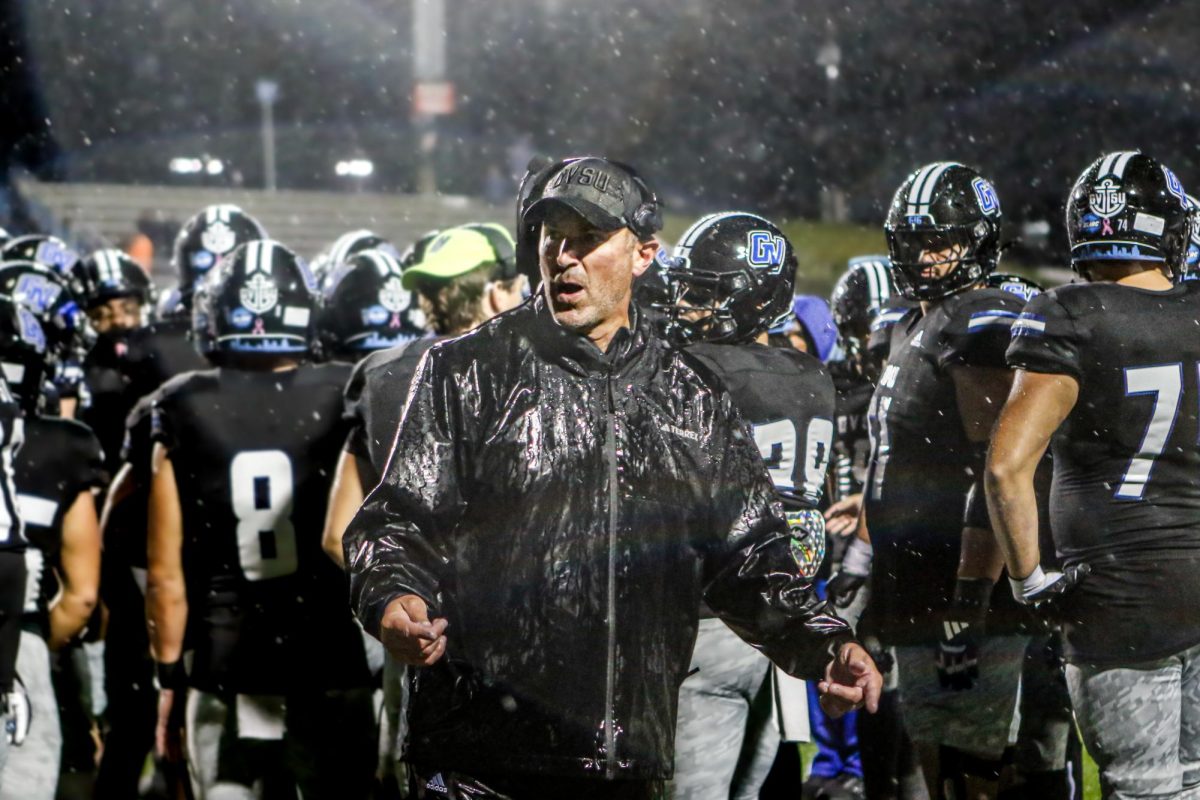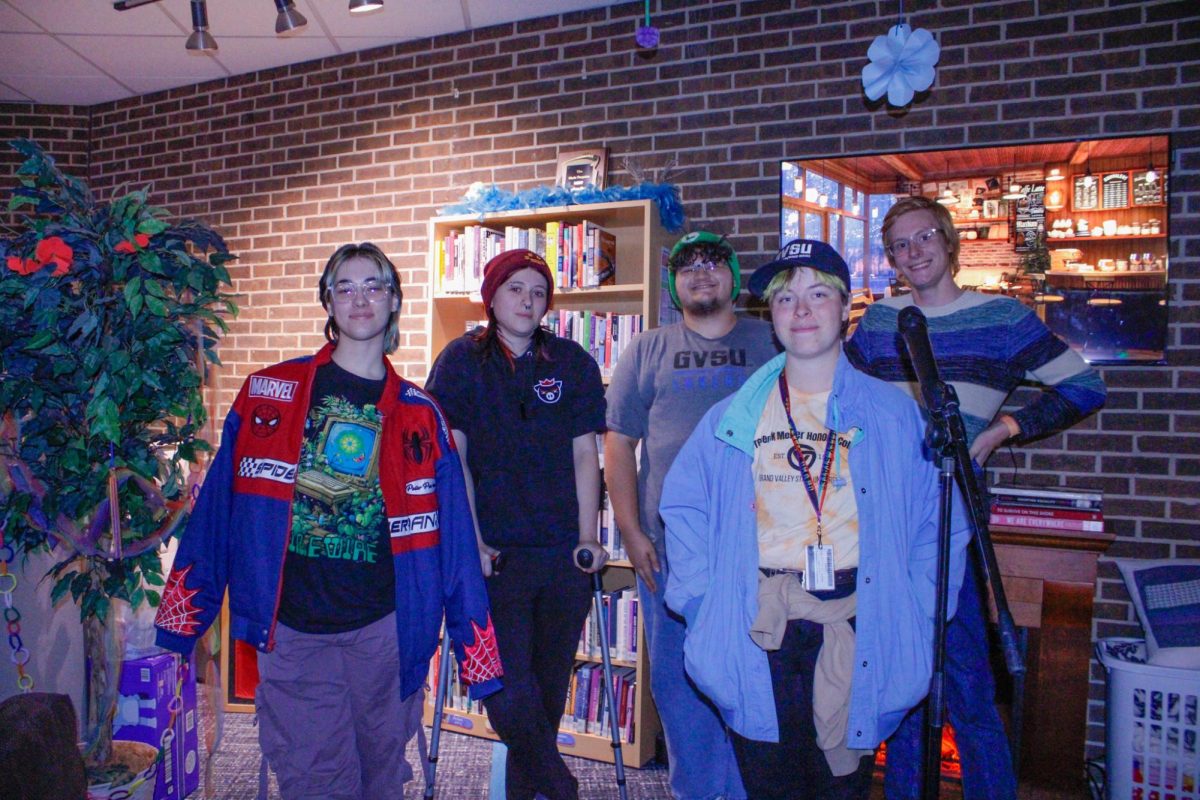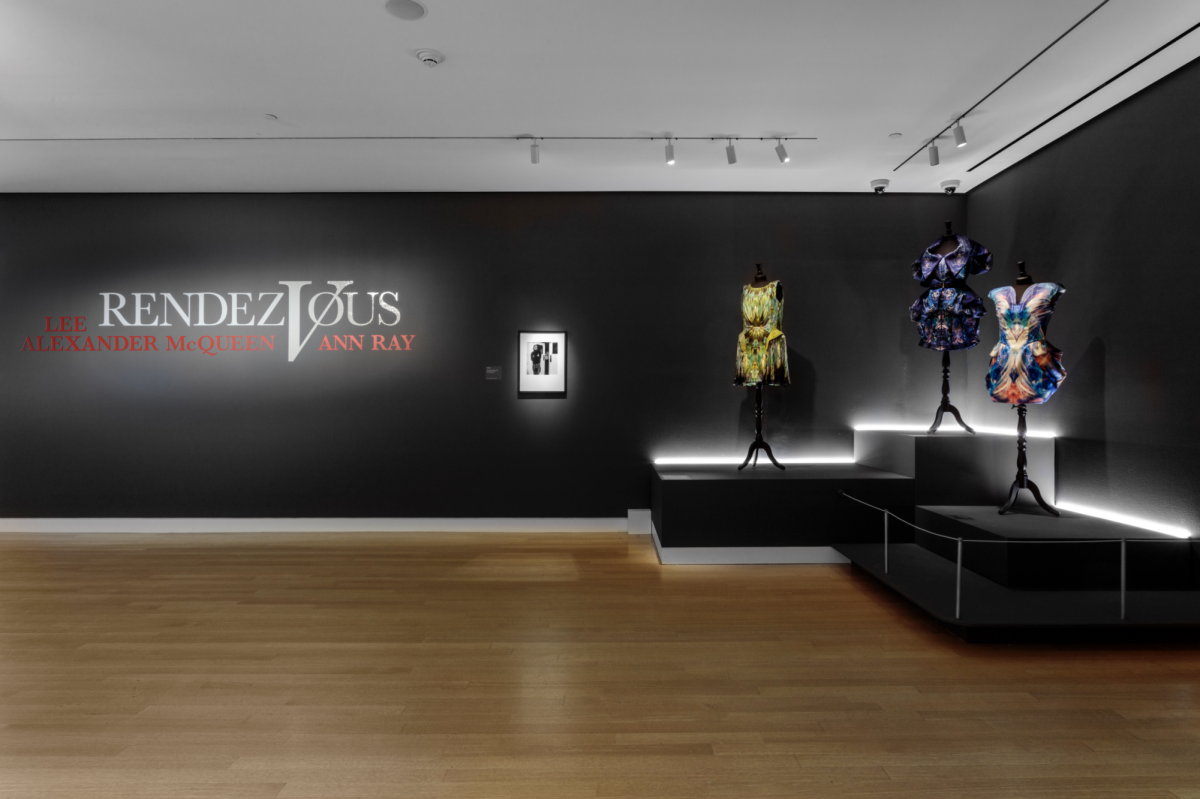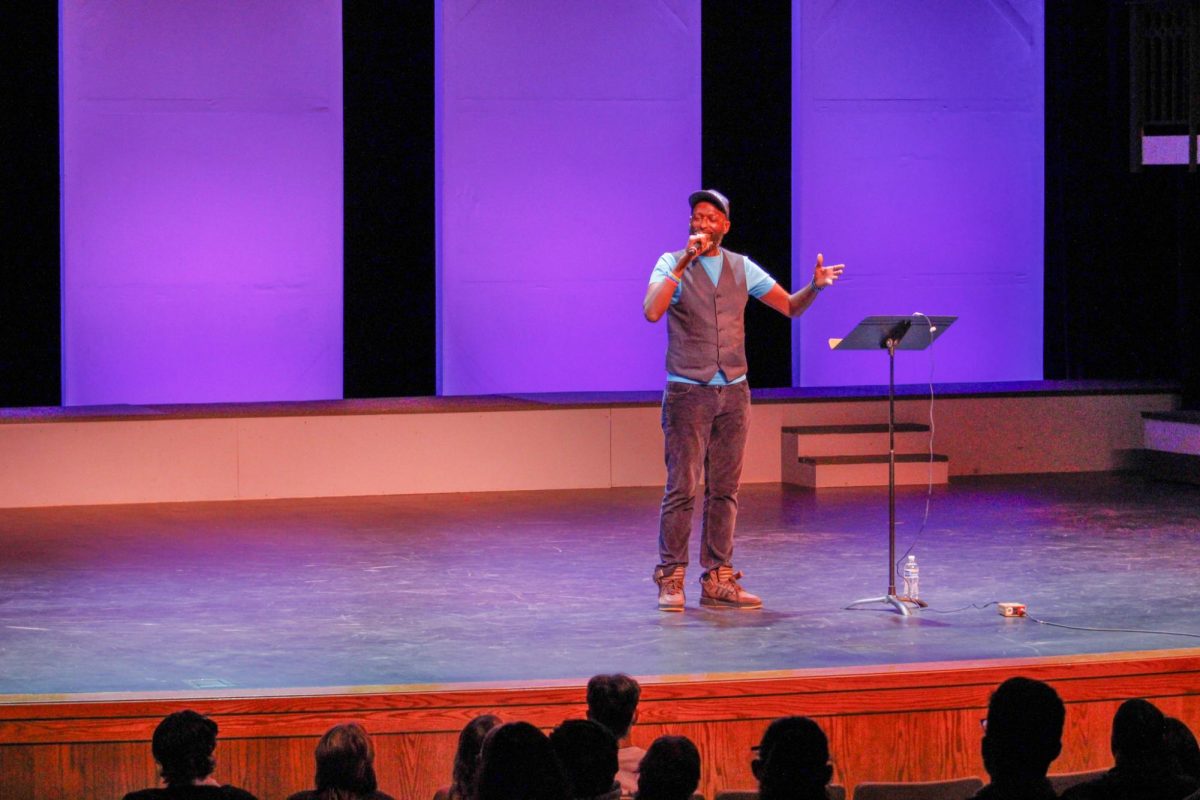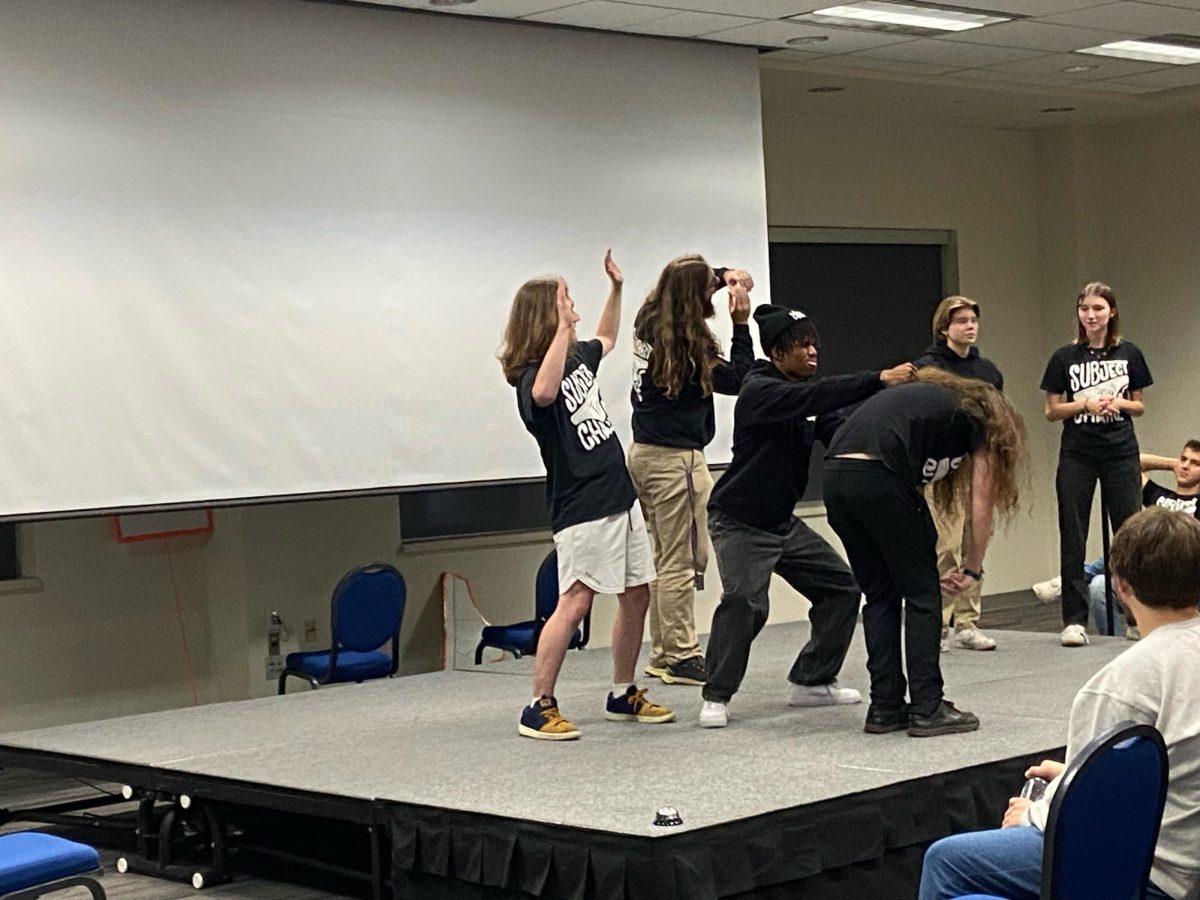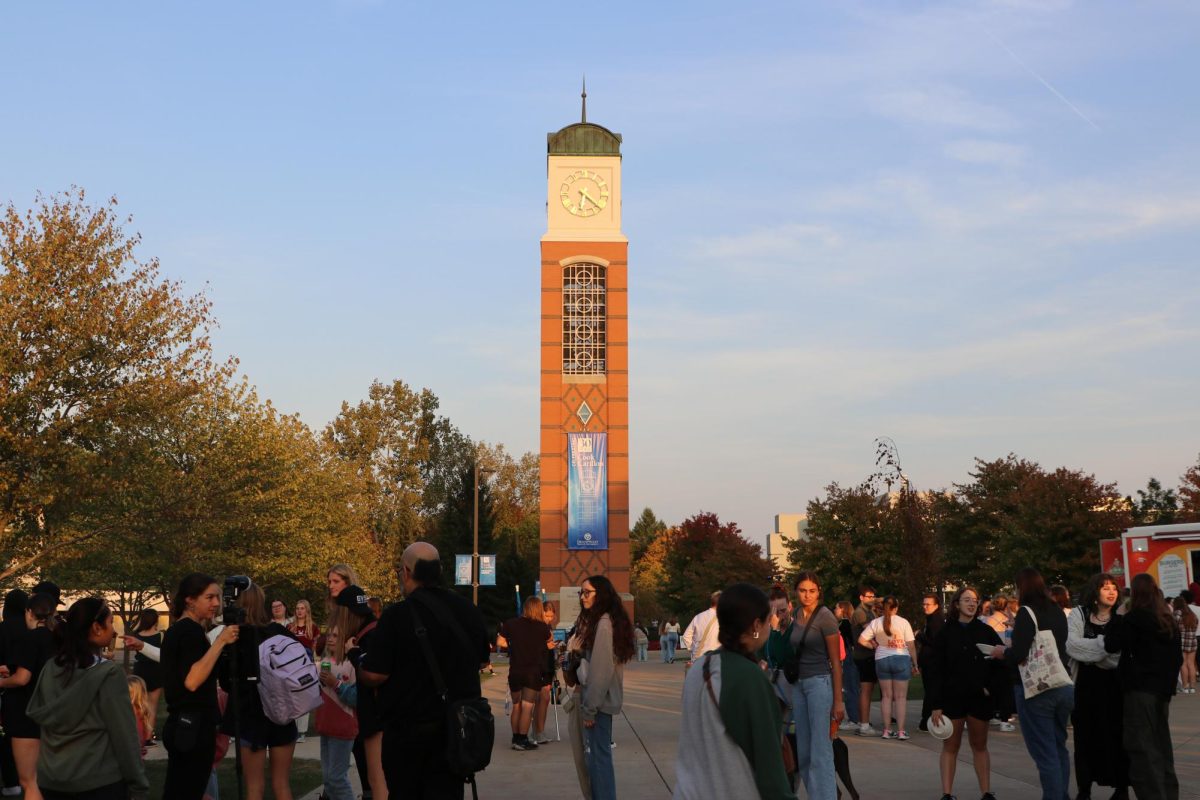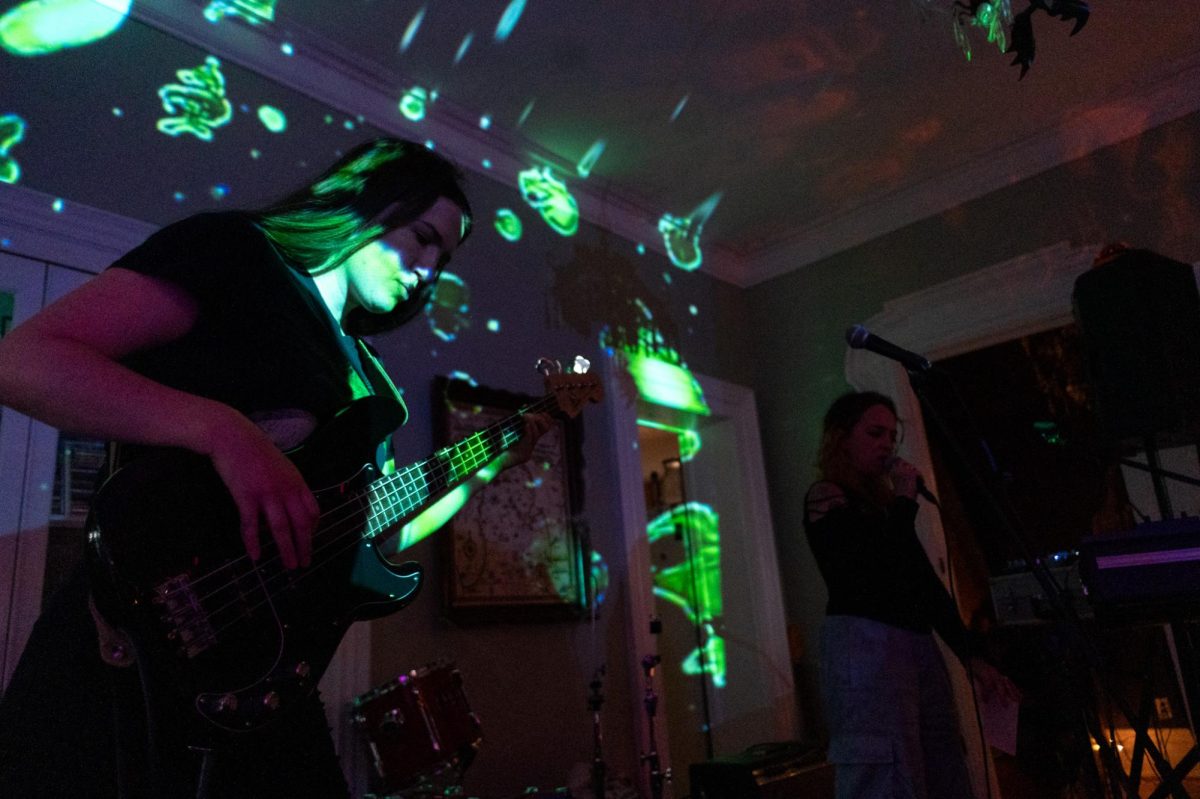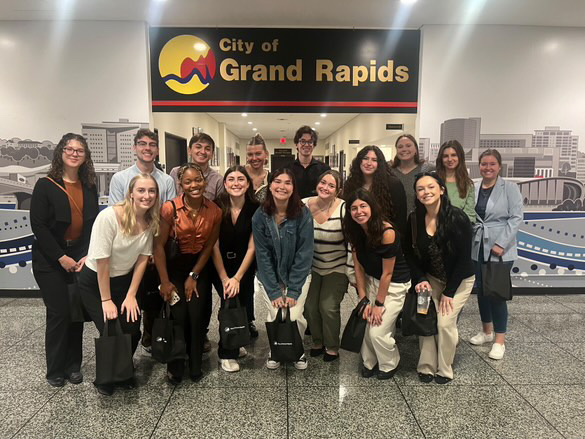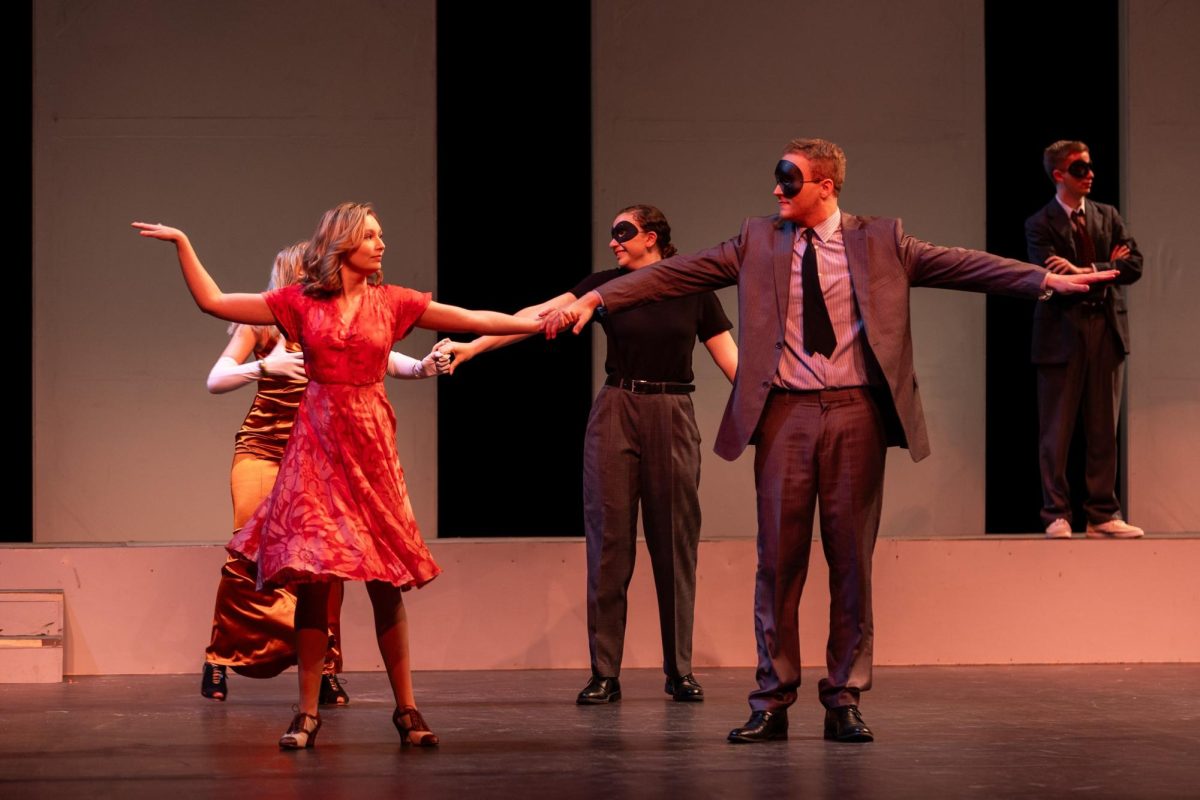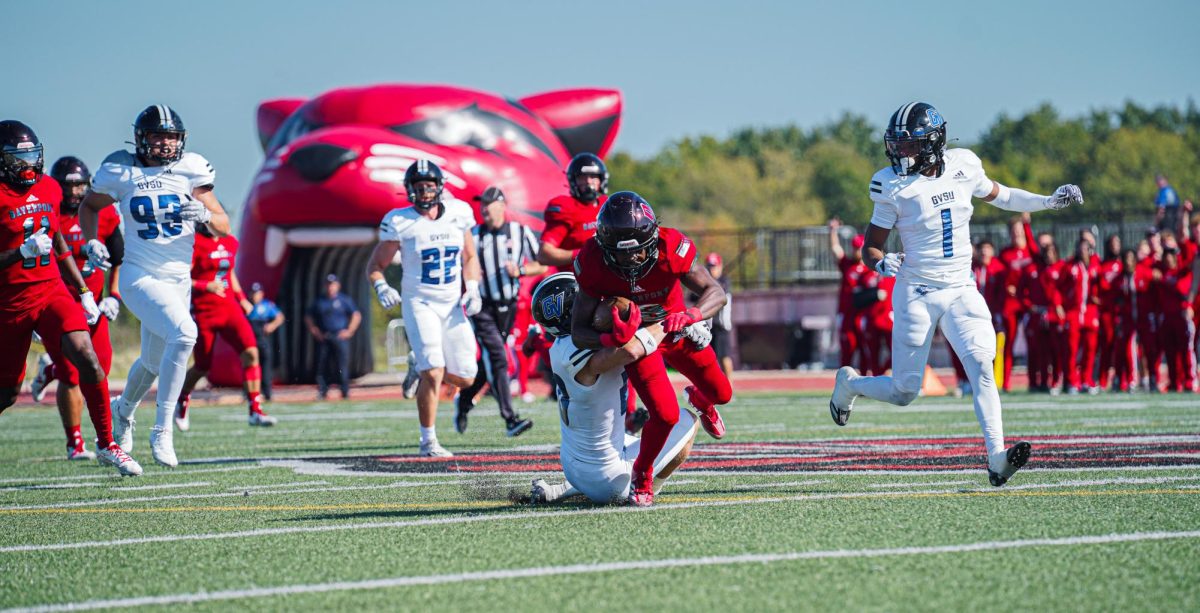GVSU observes Transgender Day of Remembrance
Nov 15, 2017
Inclusivity can be a difficult topic to address. In order to foster a discussion on the inclusion of transgender individuals and the conflicts they face, Grand Valley State University held a keynote speaker on the topic.
The Transgender Day of Remembrance, held in the Grand River Room of the Kirkhof Center on Monday, Nov. 13, drew a large crowd of interested students. The event, hosted by the Milton E. Ford LGBT Resource Center, featured a keynote by Susan Stryker, a gender theorist and historian.
Cael Keegan, GVSU professor who teaches courses in women, gender, and sexuality studies, introduced the event with a word about the purpose of the day.
“Transgender Day of Remembrance is a time when we traditionally reflect on transgender lives lost early due to violence,” Keegan said. “A day of remembrance makes losses which otherwise might not be known perceivable, communal and grievable. In other words, it makes those losses real.”
During the keynote, Stryker spoke about the current state of trans affairs in the United States, interweaving spoken word pieces with critical historical knowledge. Her forthcoming book, “What Transpires Now: Transgender History and the Future We Need,” is a deeper analysis of the issues our country faces in regard to transgenderism.
“History is a witness that bears testimony to the inescapability of difference and the inevitability of change,” she said during the event. “History is not in the past, but the present. It is not fact, but promise.”
Numerous times throughout her speech, Stryker made note of the shared trends of racial tension and a growing push for acceptance of transgenderism in U.S. culture. She clarified her point during the question and answer segment that followed her main talk.
“What I really want to insist on is I am not trying to analogize blackness and transness,” she said. “Those are two different things. But what I do want to ask is how they are related. They are both rooted in a racializing bio-political system. The fear invested in each of those figures is rooted in the same fantasy structure.”
The response to Stryker’s keynote address from the GVSU LGBT community was one of praise, with many students saying how empowered they felt by her speech. One student, Jaclyn Bohlen, was specifically interested in Stryker’s remark that “every breath a trans person takes is an act of revolution,” a quote taken from trans activist Lourdes Hunter (Hunter’s original quote was that “every breath a black trans woman takes is an act of revolution”), citing it as a major takeaway from the lecture.
“Her book is about the only textbook I genuinely enjoy,” Bohlen said. Bohlen and other students in Keegan’s class are currently reading Stryker’s book “Transgender History.”
Throughout her career as a professor of gender and women’s studies at the University of Arizona, Stryker has written numerous books about transgender culture in the U.S. and related topics. Both her first and second books were nominated for a Lambda Literary Award, and her early articles were among the first by an openly transgender author to appear in an academic journal.
Despite addressing the slew of issues and roadblocks that stand in the way of equal rights and fair treatment for transgender people, Stryker was able to close her speech on a positive note, offering hope for the future and empowerment for the community: “The radicalness of history is that it is material evidence that things can be different than the way they are now.”







